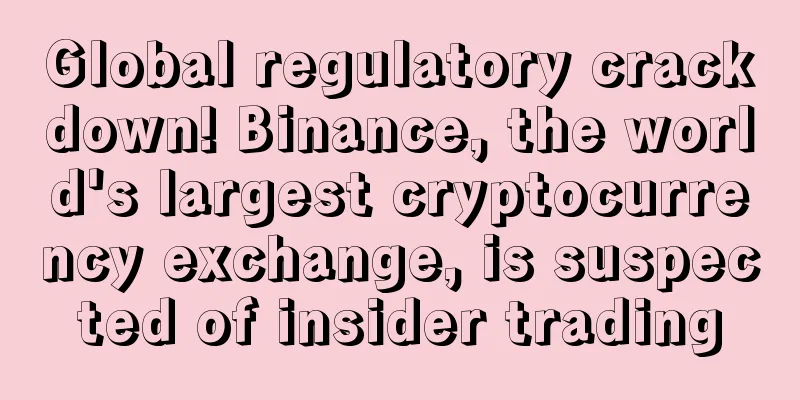Digital economist Chen Xiaohua: Why did Bitcoin break through the 10,000 yuan mark repeatedly, and why did it explode by tens of billions?

|
Since April last year, Bitcoin has been rising wildly, setting new historical highs. This year, it has broken through the $10,000, $20,000, and $30,000 mark. Since 2020, the cumulative increase has been 367%, outperforming major global asset classes. On January 6, Bitcoin once again broke through the $34,000 mark, and its market value even rivaled that of Alibaba, attracting widespread attention from many investors. Behind the myth of getting rich quickly is a warning of its high risk. On the afternoon of the 4th, the price of the currency fell back to the 28,000 mark, with a daily amplitude of nearly 6,000 US dollars, and a liquidation of tens of billions. The risk warning of encrypted digital currency deserves the attention and serious treatment of ordinary investors. Even if the price of Bitcoin continues to rise and many self-media continue to promote the investment value of Bitcoin, the public still needs to clearly realize that Bitcoin is a highly volatile and high-risk asset and is not suitable for ordinary investors. There are four main reasons for the explosive rise of Bitcoin this time. First, Bitcoin was launched in 2008 during the US subprime mortgage crisis. As time goes by, the ecosystem has become more complete, and investors can also purchase Bitcoin through a variety of legal channels. Bitcoin's mining capacity has also gradually stabilized, and due to technical reasons, its total amount is controlled at 21 million, and there will be no over-issuance or over-issuance, which can also prevent inflation, so it will not depreciate, creating a certain scarcity, which provides a basis for this year's rise. Furthermore, Bitcoin has been recognized by many authoritative institutions, and financial institutions and well-known figures in the investment community have purchased Bitcoin in large quantities . Since the second half of 2020, not only have dozens of New York Stock Exchange-listed companies announced that they hold Bitcoin, but the largest Singapore bank, DBS Group, which used to call Bitcoin a "Ponzi scheme", is now launching a cryptocurrency exchange for institutional users. The third point is that under the epidemic environment, governments of various countries have seriously over-issued currency, especially the US dollar, in order to stimulate the economy . Therefore, people have to seek assets to counter the over-issuance of the US dollar. Relatively speaking, Bitcoin, as a so-called world cross-sovereign investment product that preserves and increases its value, has once again attracted investors to scramble for it. The fourth point is that investment channels and products are limited during the epidemic. There are not many valuable ways and assets to invest during the epidemic, and the global monetary policy has released liquidity on a large scale. This "opening the floodgates" environment has put the global market in a monetary easing cycle, and the liquidity of funds has increased significantly, and people's risk aversion needs have also increased. So relatively speaking, some people call Bitcoin "digital gold", and some say it is the mainstream of digital assets in the future, and it has even become the mainstream, etc. Such concepts have expanded the room for growth again. Throughout history, such huge price fluctuations as on January 4 are not uncommon in Bitcoin. The global epidemic in 2020 disrupted the original trajectory of the world. What followed was four circuit breakers in the U.S. stock market, massive money release by global central banks, and continuous plunges in international oil prices. As a special virtual digital asset leader, Bitcoin has experienced a round of halving. At 6 pm on March 12, 2020, Beijing time, Bitcoin began to fall rapidly from nearly $8,000 to around $6,000 until it fell below. On the morning of the 13th, the price of Bitcoin continued to fall, and some trading platforms dropped to $4,000. In just two days, the price of the currency in the hands of investors evaporated by half. In the market crash, trading platforms such as Huobi even experienced long-term downtime, and repeatedly prompted "system error" and "no network connection" and other information. As a result, users were unable to close their contracts in time, resulting in liquidation, which further expanded losses to varying degrees, and was called the 312 incident. In April 2013, Bitcoin dropped by 71% in just 12 hours, from $233 to $67. The direct cause of this mining accident was Mt. Gox's own problems and hacker attacks. In the first quarter of 2014, the price of Bitcoin plummeted from $867 to $439. The direct cause of this mining accident was the same as the first mining accident. In 2017, after four years of accumulation, the price of Bitcoin was already above $3,000, but in mid-July, Bitcoin suffered a 36% correction, and the price even dropped to $1,869. Investors need to realize that the financial market in which Bitcoin is located is primitive and lacks regulation . In this world of virtual currency, trading is carried out 24 hours a day, with no price limits or suspensions, and the price fluctuations can change drastically within minutes. Secondly, the limited quantity of Bitcoin makes its price more easily controlled and hyped by market makers. In addition, the sharp rise and fall of Bitcoin prices has led to the birth of a large number of trading websites, and also brought about competition among trading platforms. The risks of these platforms should not be underestimated. With the influx of more and more investors, Bitcoin trading platforms have reached billions of yuan, and hundreds of billions of customer funds lack third-party custody. The risk of running away cannot be ignored. According to statistics from domestic Bitcoin trading platforms, the balance of customer funds on domestic trading platforms has reached tens of billions of yuan, with more than one million investors, and 80% of users are rushing in for short-term arbitrage. Zhao Yao, a special researcher at the Payment and Clearing Center of the Chinese Academy of Social Sciences, said: "In China, Bitcoin holdings account for only 7% of the global total, but the trading volume is several times that of foreign countries, accounting for more than 80% of the global trading volume. Such a high turnover rate highlights the speculative mentality of some people." The current bubble of Bitcoin is already very huge. Blindly entering the market or even increasing leverage may lead to the possibility of liquidation. For institutional investors, what they care about is profit, not sentiments such as "belief in Bitcoin" or "blockchain revolution". After the vaccine is launched and the epidemic is gradually alleviated, monetary policy will gradually shift from loose to moderately tight, and institutional investors are likely to sell Bitcoin at that time. As the price of Bitcoin gets higher and higher, market volatility will gradually increase, and investors are not recommended to increase leverage too much. Moreover, the price of Bitcoin often soars and plummets, and the fluctuations are very huge. As far as this round of Bitcoin bull market is concerned, from the perspective of the bubble cycle, it should be transitioning from prosperity to excitement. There is no asset in the world that only goes up and never goes down. Any investor should invest rationally, control risks, and not actively increase leverage or borrow money to invest in Bitcoin. Young investors with little experience need to remain rational in the face of the temptation of interests and correctly realize that Bitcoin is a highly volatile and high-risk asset and is not a safe-haven asset suitable for ordinary investors. (Xinhua Finance) |
>>: TRON is once again embroiled in securities controversy
Recommend
What should I wear to change my fortune if I have less earlobes and less luck?
People with less flesh on their earlobes will not...
Are women with double chins bad luck for their husbands? Are they not emotionally committed?
For a person, there are often some situations tha...
Breaking News: Chia will receive 200 million venture capital from A16Z, and its founder Bram expects to exceed the global storage capacity within two months
Let us review the history of Chia. It is not diff...
Bitcoin capacity problem not a ‘nightmare’, but high transaction fees may become the new normal
While Bitcoin may not face the “nightmare” scenar...
The Bitcoin industry is in a difficult situation of financing difficulties
Financial News: VC financing in the Bitcoin-relat...
IBM is making a big move in Singapore! Building a blockchain innovation center to attract various government agencies and enterprises
IBM today announced plans to establish the first ...
MicroBit leads the industry into the 3X era
"Everyone has the most difficult year in the...
Is palmistry really related to destiny? Don't believe it
Some people are skeptical about palmistry and don&...
Facial features of people who love to lie These types of people love to brag
Trust is really necessary for people to get along...
How to lose money and change your luck
No matter how good-looking you are, it’s useless ...
What is the peach blossom pattern in palmistry
If you observe carefully, you will find that ther...
Is a woman with a broken palm line unlucky?
Different palm lines bring different fortunes to ...
Teach you how to identify women who will become rich women
This is a realistic society, and it is also a mon...
[Mine Night·Fragrant Banquet] A pure miner's feast
The first "Mining Night" cocktail recep...
Plan implemented! The world's largest asset management company BlackRock has launched Bitcoin futures trading
Investment giant BlackRock has indeed "start...









